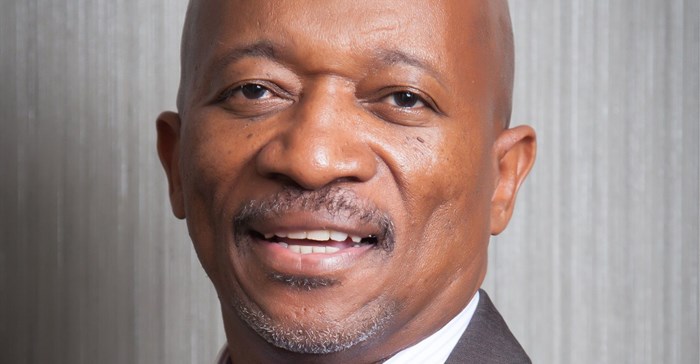At the Hospital Association of South Africa (Hasa) 2017 Conference last year, two private hospital chief executives and the head of the largest medical funder in the country laid to rest the myth that the private sector is implacably opposed to universal healthcare.

Dr Dumisani Bomela, CEO of the Hospital Association of South Africa
Practical support
In their presentations, the chief executives offered practical support to the several interventions identified by the Department of Health as it begins its first steps towards quality healthcare for all – specifically maternal and women’s health, school health, the screening and treatment of paediatric cancer, the elderly and disabled, and mental health screening.
For instance, among other suggestions, Netcare’s Group CEO, Dr Richard Friedland, pointed to his group’s success in developing high volume and low-cost cataract treatments in the United Kingdom, offering to make his group’s expertise available here; and Koert Pretorius, CEO of Mediclinic Southern Africa, suggested that in addition to the private sector making private hospital capacity available to the public sector, it could help erase backlogs in maternity care and various procedures by “undertaking a percentage of these cases at lower cost”.
Discovery Health’s CEO, Dr Jonathan Broomberg, pointed out that while it is important for ongoing engagements and debate around the form of a future healthcare system, including through the committees recently announced by the Department of Health to interrogate various aspects of the National Health Insurance, it is at least equally important to retain a strong focus on delivering immediately on the everyday healthcare needs of what Friedland earlier called an ‘unsustainably unequal’ society.
In other words, while we continue to shape and form through ongoing engagements the future fate of the healthcare system, let us get on with making sure we do the best we can for South Africans today. It is highly likely that as collaborations deepen on everyday healthcare delivery, collaboration on larger issues like the National Health Insurance will become easier, more pragmatic, and less adversarial.
Other countries
The situation South African healthcare finds itself in is not unique – many others have walked down these admittedly difficult paths. At the conference, Denise Soares dos Santos, who runs one of the largest private sector healthcare hubs in Brazil - and her compatriot Luiz Augusto Carneiro - described how the two sectors have found ways to exist side-by-side, sustainably, against a backdrop of slow economic growth, the need to reform their healthcare system, and the pressing need for social stability in an unequal society. Their journey to this point may not have been untroubled – for one, healthcare inflation ran for years in the double-digits - but Brazil has shown that workable solutions can be found.
Similarly, Dr Vinod Bhat, vice chancellor of Manipal University, described how his country – India – has fashioned success out of collaboration between the public and private sector in expanding training facilities for doctors to meet a debilitating shortage in the profession in that country. As did Brazil, which responded similarly to India, South Africa faces the same challenge in that this country has only half the global average number of doctors - a number that has remained static for decades even as the population has doubled. There are no such partnerships in this country to increase the numbers of medical students – there are no public-private collaborations in South Africa to increase the numbers of doctors in training.
Performance and outcomes
In like manner, a third speaker at the conference, Marine Erasmus, director at Econex, made the point that the cost of universal healthcare debate is a distraction from the need to collaborate to improve on the performance of the healthcare system and its outcomes.
The critical point is that whether we are concerned about the daily healthcare needs of South Africans or the long-term future of the healthcare system in this country, the potential for success is exponentially higher when partnerships exist.
We now have the stated intention of moving towards universal healthcare in the gazetted National Health Insurance, but to move from a stated intention to a realised ambition is another thing altogether.
To paraphrase one conference speaker: having a policy is important, but it is not enough; without collaboration we cannot expect to wake up on the 1 April 2026 (or at some future date) and hope that by some miracle universal healthcare will be in place. Nor, he may have added, will we quickly enough solve the immediate healthcare challenges South Africans face without joining hands today.






















































